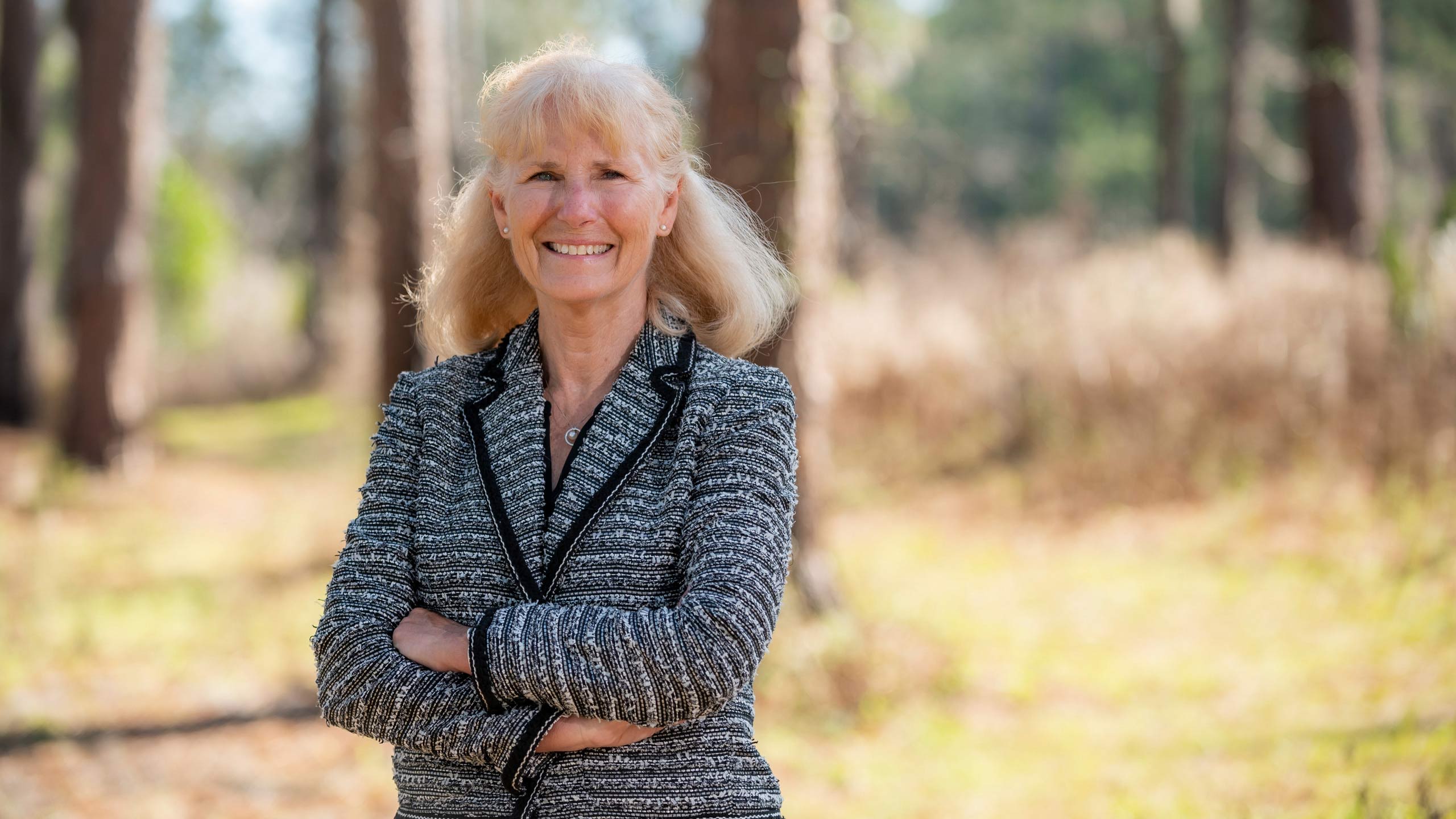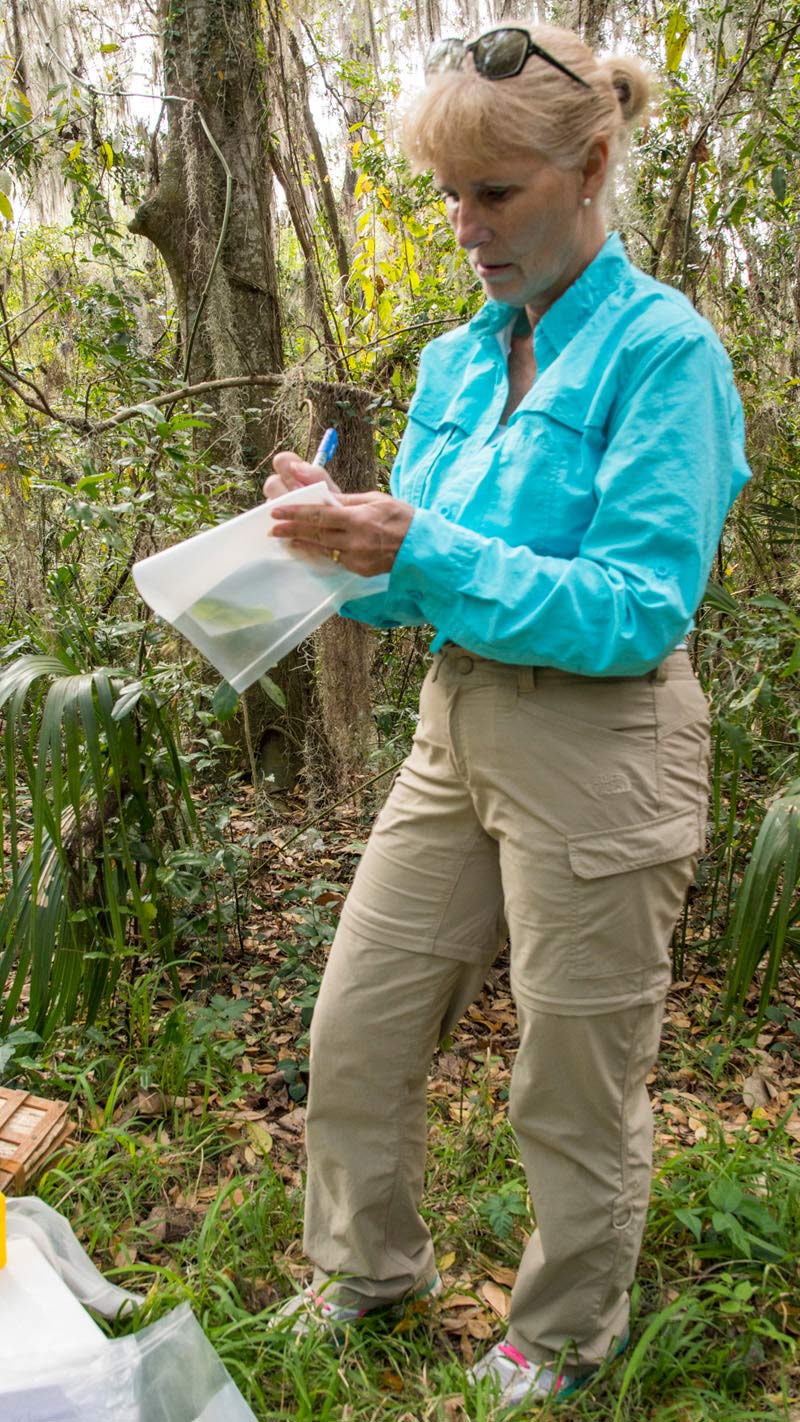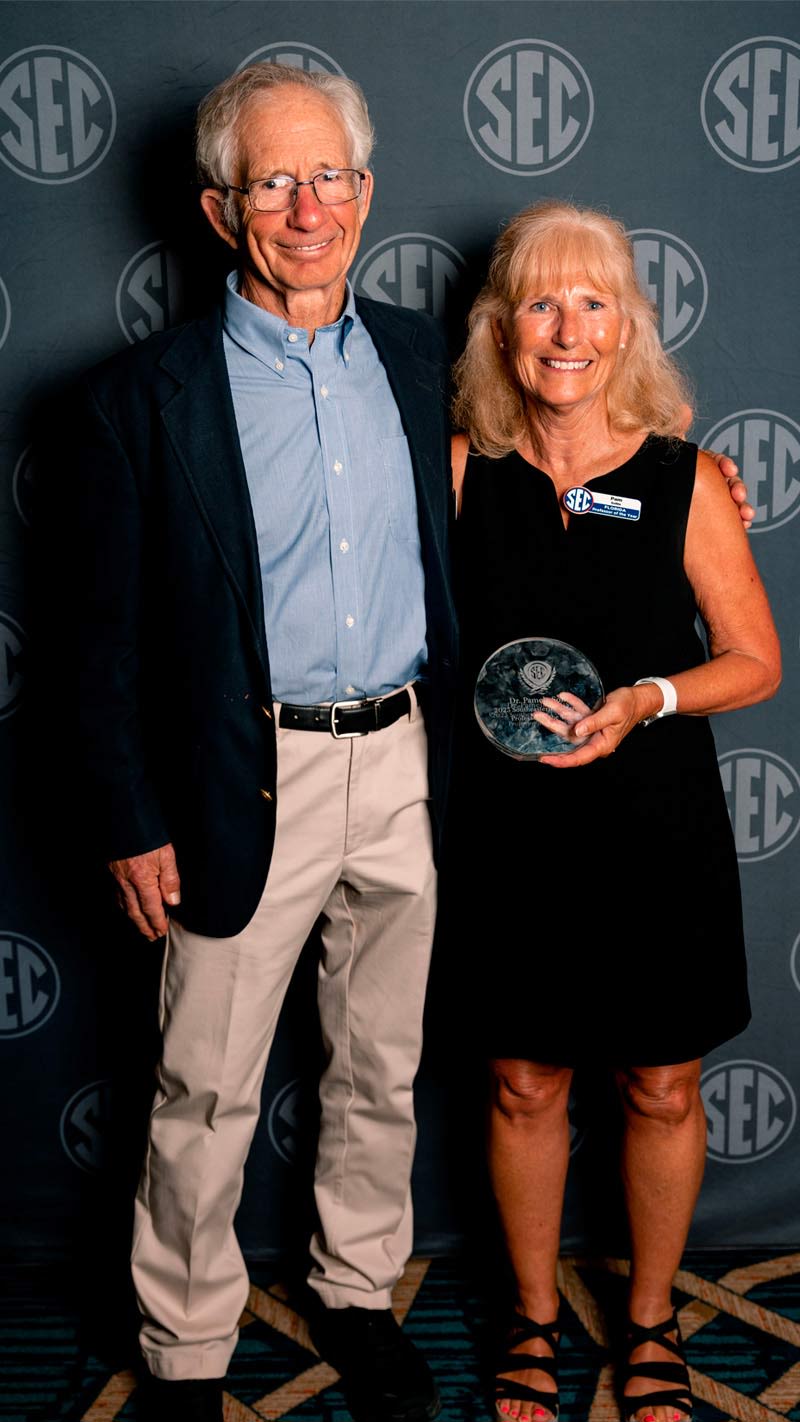Collecting is Second Nature for SEC Professor of the Year Pamela Soltis

Dr. Pamela Soltis has been a collector her entire life.
As a young child, she picked up seashells during Florida vacations. By middle school, her basement was filled with rocks and fossils from a local strip mine. Now, in her professional career, she is surrounded by millions of specimens and artifacts at the Florida Museum of Natural History.
Through her experiences – including work as a teenager in Iowa cornfields to help cross-pollinate lines of corn – Soltis’ passions for nature and science led her to become an internationally recognized botanist.
“I found out in graduate school there were lots of things you can do with genetics other than agriculture,” Soltis said. “I went to a smaller undergraduate school so you could only major in general biology. When I became part of a botany department, I saw that I really liked the same principles [of genetics, but I like applying them to studying questions in environmental biology, especially evolution.”
Soltis’ biodiversity expertise led her to the University of Florida, where she serves as distinguished professor and curator at the Florida Museum of Natural History and director of the UF Biodiversity Institute. That expertise is also one of the reasons she was named the 2023 Southeastern Conference Professor of the Year.
“I was shocked and for a lot of reasons,” Soltis said of the honor. “I have so many valuable colleagues here at UF. That’s not even mentioning the other [SEC] institutions. I just couldn’t believe it.”
Soltis, who joined the Florida faculty in 2000, thought the university brought a unique perspective with the then-newly established UF Genetics Institute. Combine that with the vast number of plant biologists on campus and a museum that can rival the Smithsonian’s programming, and it is easy to see how Soltis has conducted groundbreaking research in plant evolution and biodiversity.
“Dr. Soltis’s game-changing research has been lauded at the very highest levels in the scientific world and represents Gator Nation in the very best way,” said UF President Ben Sasse. “Her contributions in the laboratory, the field and the classroom have moved scholarship forward significantly, and her collaborative approach has won her the respect and admiration of colleagues worldwide.”
Over the past three decades, her research has accumulated numerous honors and awards. Soltis is a member of the National Academy of Sciences, the American Academy of Arts and Sciences, and the American Association for the Advancement of Science.
She was named the 2021-22 UF Teacher-Scholar of the Year and a U.S.-U.K. Fulbright Distinguished Professor. Soltis was a nominee for the National Medal of Science and won the Southeastern Universities Research Association’s 2018 Distinguished Scientist Award.
Many of her awards come from collaborations with her husband, Dr. Douglas Soltis, who is also a distinguished professor at the University of Florida. The two were set on a crash course for success ever since they met during a department picnic’s volleyball game.
“We were total strangers because he was an invited seminar speaker, and I hadn’t been able to talk to him yet,” Pam Soltis said. “We were playing on the same team, both very competitive after playing for our respective college tennis teams, and we went diving for the same ball and collided.
“After that, we apologized to each other, and we spent the afternoon talking about botany, chromosomes and, of course, crashing into each other during that volleyball game.”
One of the couple’s most robust projects is their contribution to understanding the Tree of Life, which can be recognized as a family tree for all species on Earth. The Tree of Life documents every known species and how they are related, helping to develop research such as new drugs or address societal needs.
The Tree of Life grew from DNA sequence data, and now artificial intelligence is rooting itself in the biodiversity field. Soltis is part of the Integrated Digitized Biocollections, or iDigBio, a National Science Foundation-funded project making digital records of museum specimens.
Soltis’ efforts focus on developing new research applications for these digitized images. The project stems from Florida’s artificial intelligence initiatives and brings AI into the future of biodiversity.
“It’s exciting to be here at UF in part of this digitization program at the same time as the university has developed this AI capability,” Soltis said. “We are using AI for very simple concepts – identifying if a plant is in flower or not, what date did it flower, etc. – but putting these two things together is really exciting.”

Dr. Pamela Soltis in the field
Dr. Pamela Soltis in the field

Dr. Pamela Soltis with her husband, Dr. Douglas Soltis of the University of Florida
Dr. Pamela Soltis with her husband, Dr. Douglas Soltis of the University of Florida

Dr. Pamela Soltis in the field
Dr. Pamela Soltis in the field
“I was shocked and for a lot of reasons,” Soltis said of the honor. “I have so many valuable colleagues here at UF. That’s not even mentioning the other [SEC] institutions. I just couldn’t believe it.”
Soltis, who joined the Florida faculty in 2000, thought the university brought a unique perspective with the then-newly established UF Genetics Institute. Combine that with the vast number of plant biologists on campus and a museum that can rival the Smithsonian’s programming, and it is easy to see how Soltis has conducted groundbreaking research in plant evolution and biodiversity.
“Dr. Soltis’s game-changing research has been lauded at the very highest levels in the scientific world and represents Gator Nation in the very best way,” said UF President Ben Sasse. “Her contributions in the laboratory, the field and the classroom have moved scholarship forward significantly, and her collaborative approach has won her the respect and admiration of colleagues worldwide.”
Over the past three decades, her research has accumulated numerous honors and awards. Soltis is a member of the National Academy of Sciences, the American Academy of Arts and Sciences, and the American Association for the Advancement of Science.
She was named the 2021-22 UF Teacher-Scholar of the Year and a U.S.-U.K. Fulbright Distinguished Professor. Soltis was a nominee for the National Medal of Science and won the Southeastern Universities Research Association’s 2018 Distinguished Scientist Award.

Dr. Pamela Soltis with her husband, Dr. Douglas Soltis of the University of Florida
Dr. Pamela Soltis with her husband, Dr. Douglas Soltis of the University of Florida
Many of her awards come from collaborations with her husband, Dr. Douglas Soltis, who is also a distinguished professor at the University of Florida. The two were set on a crash course for success ever since they met during a department picnic’s volleyball game.
“We were total strangers because he was an invited seminar speaker, and I hadn’t been able to talk to him yet,” Pam Soltis said. “We were playing on the same team, both very competitive after playing for our respective college tennis teams, and we went diving for the same ball and collided.
“After that, we apologized to each other, and we spent the afternoon talking about botany, chromosomes and, of course, crashing into each other during that volleyball game.”
One of the couple’s most robust projects is their contribution to understanding the Tree of Life, which can be recognized as a family tree for all species on Earth. The Tree of Life documents every known species and how they are related, helping to develop research such as new drugs or address societal needs.
The Tree of Life grew from DNA sequence data, and now artificial intelligence is rooting itself in the biodiversity field. Soltis is part of the Integrated Digitized Biocollections, or iDigBio, a National Science Foundation-funded project making digital records of museum specimens.
Soltis’ efforts focus on developing new research applications for these digitized images. The project stems from Florida’s artificial intelligence initiatives and brings AI into the future of biodiversity.
“It’s exciting to be here at UF in part of this digitization program at the same time as the university has developed this AI capability,” Soltis said. “We are using AI for very simple concepts – identifying if a plant is in flower or not, what date did it flower, etc. – but putting these two things together is really exciting.”
This content is sponsored and provided by Southeastern Conference and developed by Inside Higher Ed's sponsored content team. The editorial staff of Inside Higher Ed had no role in its creation.


